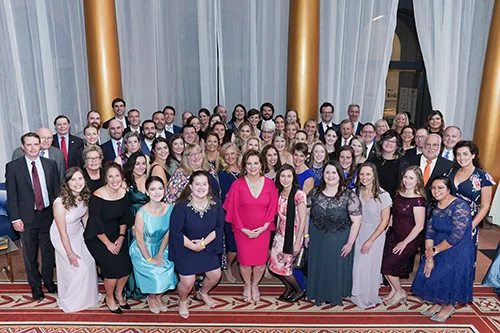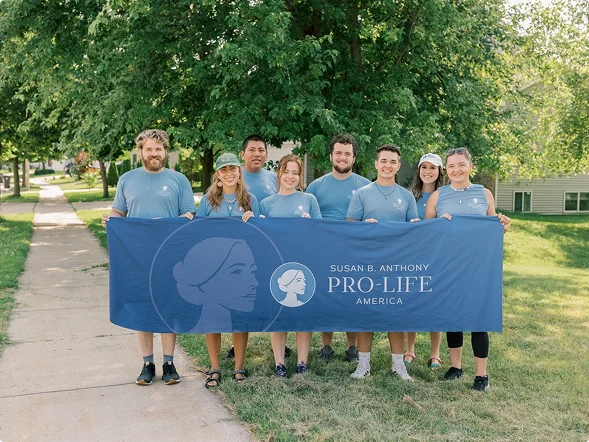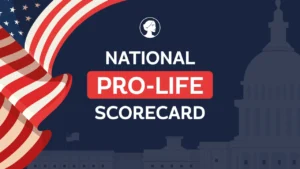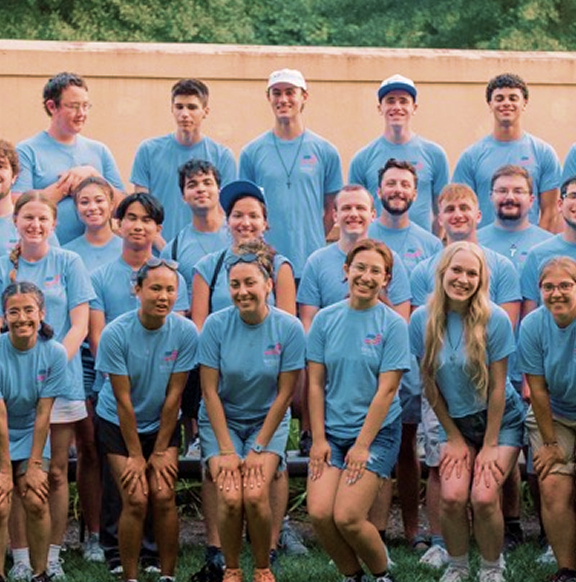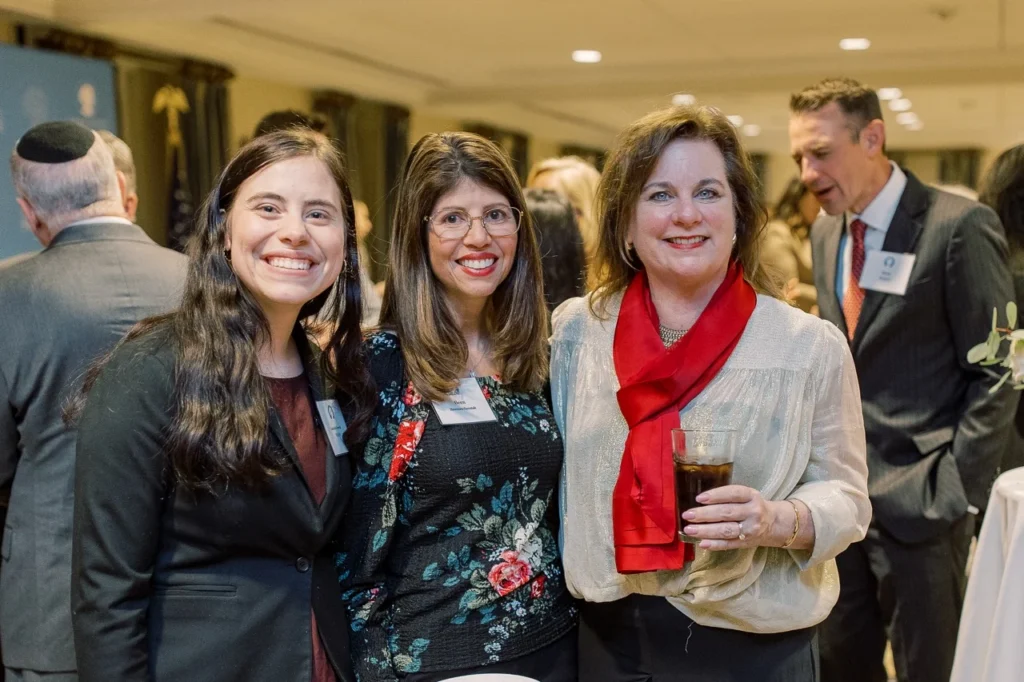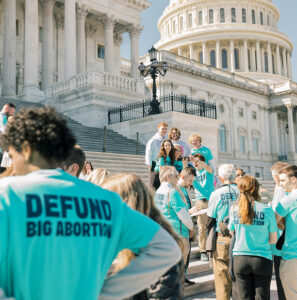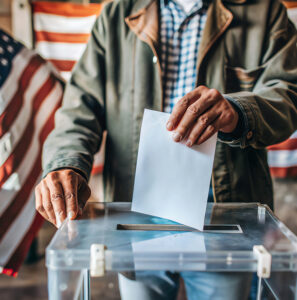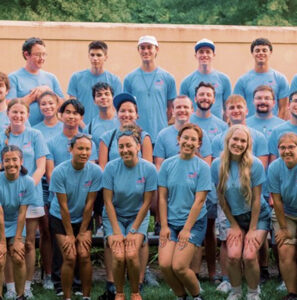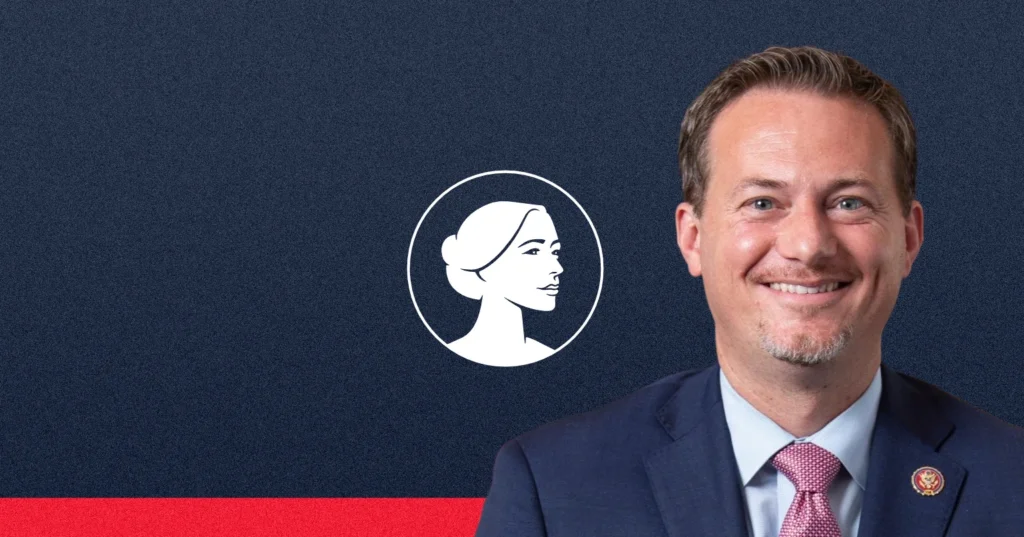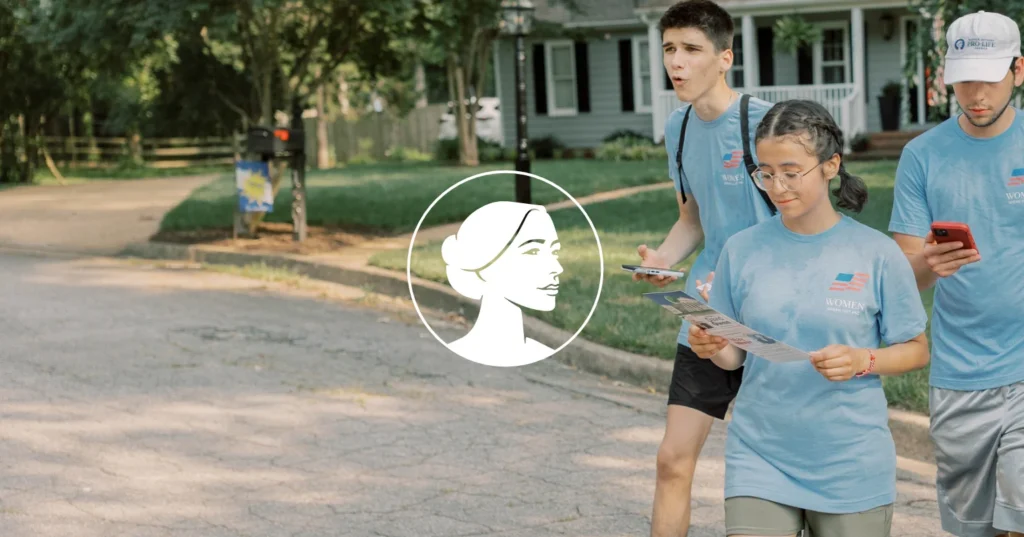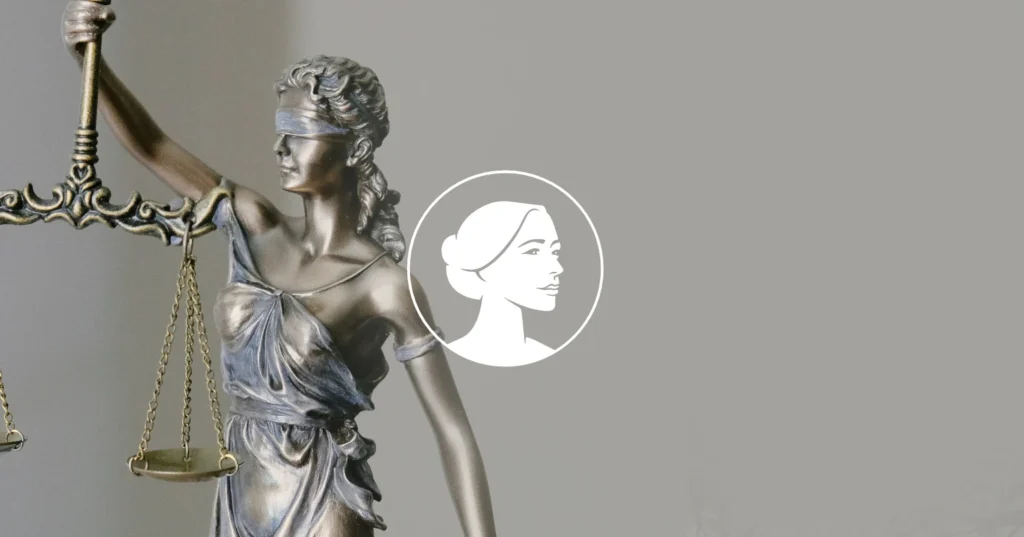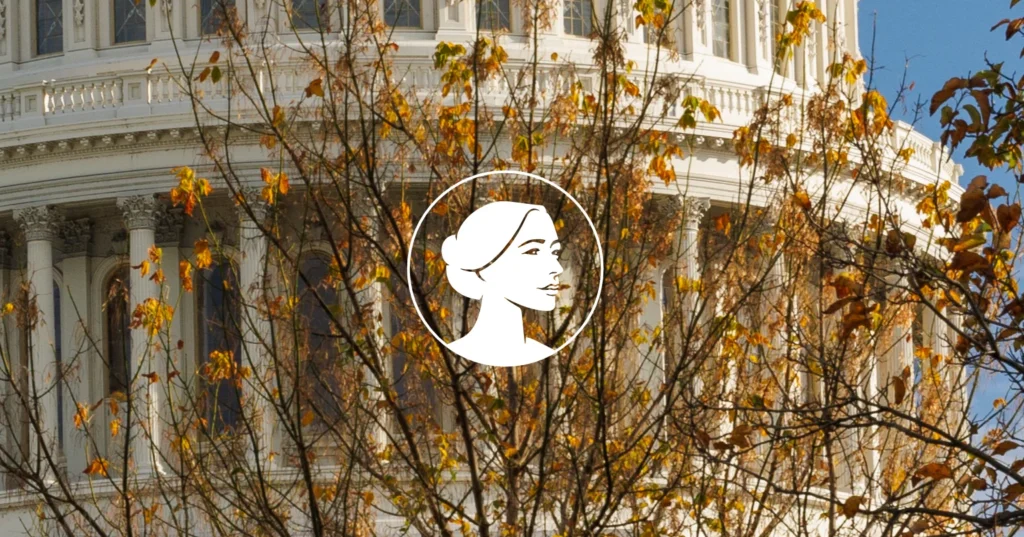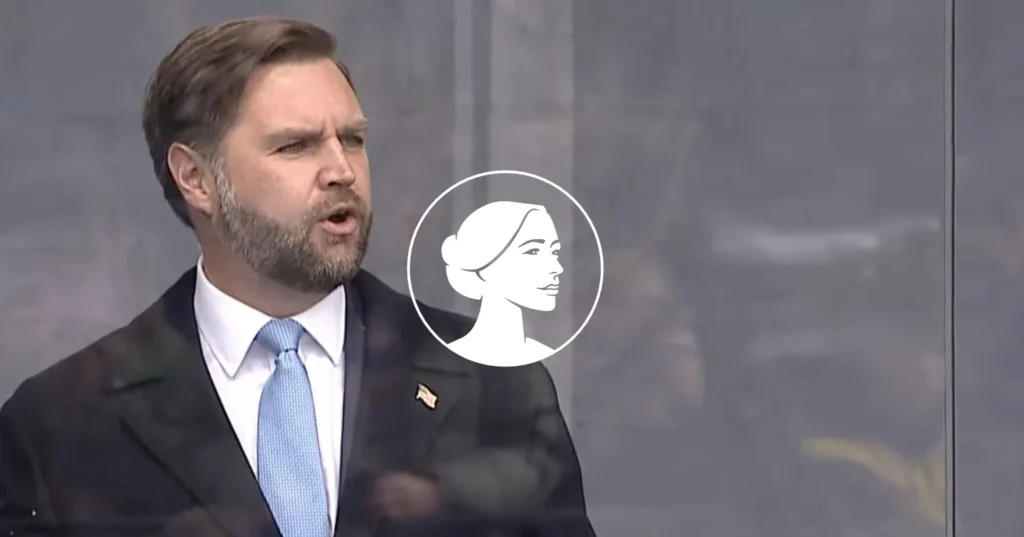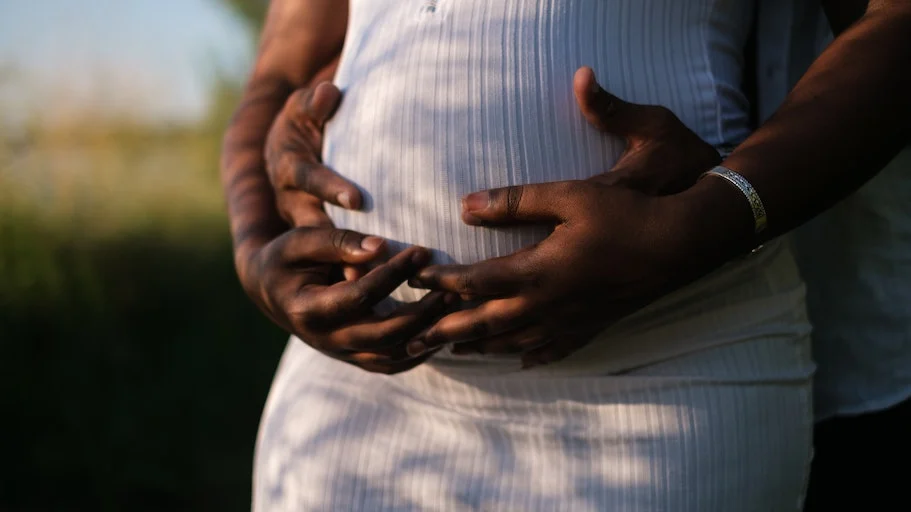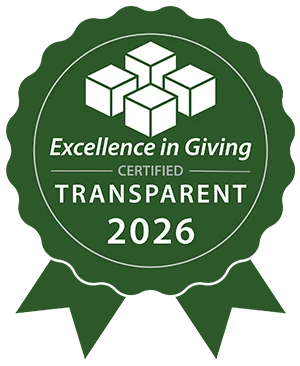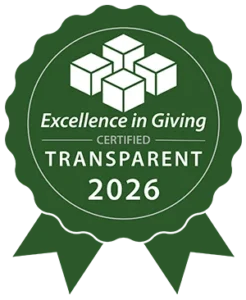Exposed: Abortion in America, Episode 22: Coercion Over Care: Elizabeth’s Chemical Abortion Story
In this episode of EXPOSED: Abortion in America, Elizabeth Gillette shares her heartbreaking story of coercion and loss after undergoing a chemical abortion at Planned Parenthood. Living in Oregon—a state with no protections for babies in the womb—Elizabeth faced an unexpected pregnancy in her early twenties. Despite her initial hesitation and cries for help, she experienced immediate coercion from Planned Parenthood staff, who dismissed her uncertainty and pushed her toward abortion with fear-driven tactics.
Elizabeth recounts the lack of true informed consent, as Planned Parenthood failed to disclose the severe physical and emotional risks of abortion drugs, which now account for over 50% of abortions in the U.S. and have led to a 500% increase in ER visits from 2002-2015, according to Charlotte Lozier Institute research. She describes the traumatic reality of her chemical abortion, including severe bleeding, labor-like pain, and the devastating moment of seeing her recognizable baby—contrary to the “double period” she was told to expect. The aftermath left her with post-traumatic stress, emotional struggles, and a lack of follow-up care, highlighting Planned Parenthood’s prioritization of profit over women’s well-being.
Reflecting on her journey, Elizabeth emphasizes the importance of seeking support and taking time to make an informed decision. She urges expectant mothers to tell loved ones about their pregnancy and to explore life-affirming options, such as those provided by Her PLAN’s network of over 3,400 vetted providers. Elizabeth’s story is a stark reminder of the abortion industry’s coercive practices and the urgent need for stronger protections for women and babies in the womb.
Transcript
0:00: All right.
0:00: Well, Elizabeth, thank you so much for being here today.
0:03: We’re so grateful that you were willing to come on the podcast and tell your story to our listeners.
0:09: so to begin, could you tell us a little bit about your background?
0:13: Yeah.
0:13: So, thank you for having me.
0:16: I am a mother of 4 living children and 1 lost child.
0:22: , I, I live in Oregon, which is a state that currently has no restrictions to abortion.
0:28: You can have an abortion from, you know, the very first positive pregnancy test all the way until the moment of birth.
0:36: and I, became, a Catholic as an 18 year old, and which was really a life changing, but obviously that, It didn’t take hold.
0:50: I think it took root, but it didn’t take hold until several years after my abortion.
0:55: I and you know how some really good things can come from really negative things, and the experience of my abortion really did bring me closer to my faith and and brought me out of a, a lifestyle that was really dangerous.
1:10: so I like to try and see the silver lining and That’s awesome.
1:15: Could you tell us a little bit about that first pregnancy that you had?
1:18: When did you first discover that you were pregnant?
1:22: Yeah, I was in my early twenties and, I had gotten really nauseous, which was not like me.
1:29: And so I took a pregnancy test, and found out I was actually alone.
1:34: I was in my room and just took the test on my own and was pretty scared right away.
1:41: It was not something I was anticipating or planning.
1:43: It was very much what we would consider a crisis pregnancy.
1:47: , I was in a committed relationship, but I was still very young and very immature, and he was not pleased.
1:55: he said it was the worst possible thing that could happen to him in his life at that time.
1:59: And so I found myself really in a situation where I had no.
2:05: Perceived support and also he wasn’t super supportive about parenting or having a baby.
2:11: and I also just felt really like my confidence had been shaken.
2:15: My confidence was totally taken away as soon as he said that it was the worst possible thing.
2:19: , so I, I knew, in the moment that, well, I thought the best thing was to be secretive about it.
2:29: I didn’t feel like I could tell anyone about it, and I think that was one of the biggest mistakes I made, cause I didn’t reach out to people that could have been supportive.
2:39: And were you pro-life at the time?
2:42: I think that fundamentally I was pro life, right?
2:46: I had.
2:49: I had read, you know, some of the pro-life literature and things, but I didn’t have action behind that thought.
2:57: And when I found myself in that situation,, I did what I had been taught to do in schools and what society had taught me to do, and that was to call Planned Parenthood because that’s the organization that was supposed to help me in this crisis, and that’s what I did, rather than going to my parents, rather than going to my friends, I went to Planned Parenthood.
3:19: My boyfriend gave me the phone number.
3:22: He told me to call them, that they would help me.
3:25: And I went to them hoping to get support, hoping to get help, hoping to get answers, hoping to get, you know, a full picture of what my options were, but that’s not really what happened.
3:38: they were there for me.
3:39: They gave me an appointment, and the appointment was very quick, but I did not get a full supportive picture of what my options were.
3:47: , instead, the coercion to make the choice to abort started almost, it did start immediately as soon as I made that first phone call.
3:56: Wow, could you tell us more about that initial phone call and just what your quote unquote care looked like at Planned Parenthood?
4:04: Yeah, I called the number and the receptionist answered.
4:08: She was kind, you know, she was chipper on the phone, ready to talk, ready to lend a hand.
4:15: and as soon as I said, I’m not ready, I, I don’t know that this is what I want to do.
4:20: I’m not ready to make a decision, but I think I might need an appointment to talk to someone.
4:25: , she Started the coercive monologue, the coercive, what’s the word I’m looking for?
4:33: Almost like a track of things that you say, right?
4:37: so she started saying the canned answers, and she said, oh, you know what, when, when people call us, that’s the sign that we know that they really do want an abortion.
4:50: So when, when you call us just by making that phone call, That’s how I know that you really do want to have an abortion, so you need to just, you know, trust that, trust that this is what you need and that this is what you want.
5:02: , so really it was dismissive of the fact that I said I’m not sure and I, and I, I need some help.
5:08: I need support.
5:10: She tried to spin that around on me and make it so that by making a phone call, by reaching out to Planned Parenthood, I was already decided.
5:18: I already knew that I wanted an abortion, which couldn’t have been farther from the truth.
5:23: I really needed, I needed someone to talk to.
5:26: I needed someone to say I could do it.
5:28: I needed someone to say that I was capable, but that’s not what I got.
5:32: Instead, the The the words and and the narrative that were given to me was like dishing up fear and putting it on a silver platter for me to eat, you know, you will feel relieved after you have an abortion.
5:48: You won’t be able to do all the things that you want.
5:52: If you don’t have an abortion, you know, your boyfriend isn’t supportive, so you can’t do it on your own.
5:58: The best thing to do is to take care of it and try again later with somebody who wants a baby.
6:04: The whole narrative was really coercive.
6:07: And I like to think, because I like to believe that people aren’t like that on purpose.
6:12: I would like to think that she believed that she was giving me the information I wanted to give me the out, to give me the OK to have an abortion.
6:21: But in reality, what she was doing was alienating me from the ability to make an informed choice.
6:28: She was alienating me, alienating me from The whole picture and only giving me information that she, she knew that I needed to make the choice to have an abortion, and that’s coercion, cause that’s not, that’s not informed choice making.
6:45: Yeah, and I find that so interesting because Planned Parenthood, like on their website, and so much of the information that they put out, they’re all about informed consent.
6:57: But then I keep hearing these stories of women who have gone and have received much the opposite of a level of informed consent, and have been very much pressured and coerced into a very specific direction.
7:13: And unfortunately, that was your experience at this Planned Parenthood.
7:17: Now, was there ever an element where you felt like they gave you compassionate, true medical care, or did you feel like from the beginning, it was just an agenda being pushed?
7:30: I think that definitely there was an agenda being pushed, and I do think that it was delivered with an element of compassion, right?
7:39: Because people don’t work in a job like that when they don’t believe in it, right?
7:45: And so I think that what they were doing, they they honestly thought that they were doing it from a place of compassion, and so I do want to give them that, right?
7:54: but It was very clear that I did not want to be there.
7:58: From, from the moment I arrived at the facility at the window, putting money across the the counter, I was saying things like, Can we get a refund?
8:08: You know, can I have my money back if I change my mind?
8:12: And the answer was, Well, you can have a refund for the portion of services that you don’t receive.
8:17: So the minute you go back and see the doctor, you’re going to pay for that, and the minute that you go into the room, you’re going to pay for the room, and the minute you have an ultrasound, you’re going to pay for the ultrasound.
8:26: And at the very end, if you decide not to have an abortion, I guess we can give you like, I don’t know, $15 back for not receiving the medication.
8:34: Which to me made it feel like, well, I’m already paying $800 like I’m not gonna get any of it back.
8:39: So now there’s there’s a financial component to this coercion.
8:43: And there was also a component that was immediacy, this, this idea that I had to make my choice really quickly.
8:52: They kept instilling in me, you know, you can only take the medication abortion, you can only have this chemical abortion up until 10 weeks, and that’s the safe, easy, effective way to do it.
9:03: And if you wait because you’re indecisive, we can’t guarantee that you can come back and have another appointment.
9:09: And so if you leave, We can’t guarantee that you can do it the easy way.
9:12: You’re gonna have to come back and have this terrible, painful surgical procedure, and they, they made that that procedure feel like something that would be really awful, which, which it would have been, right?
9:24: It’s, it’s an awful procedure.
9:26: but so is the chemical abortion, and I didn’t know that at the time.
9:31: It was presented as the safe and gentle way, and so I thought, well, I only have until 10 weeks to make this decision.
9:38: And they also told me if I left the appointment, they were so busy they couldn’t get me in again until after that 10 week mark.
9:47: So I had to make that decision that day at that appointment or else suffer the consequences of this inflated sense of fear, that this fear that they instilled in me about having a baby, right, which is so false because I had two crisis pregnancies after that one.
10:05: I wasn’t living a lifestyle that I’m particularly proud of, but that’s how it was.
10:10: And I had two more crisis pregnancies, and their fathers were not involved at all, and I carried those babies to term and have two beautiful children, and I did it on my own.
10:19: So that sense of fear was completely false.
10:21: I had nothing to be afraid of.
10:24: I, I had the ability to do it, but they didn’t tell me that.
10:27: They told me the opposite was true.
10:30: And that’s so interesting when Planned Parenthood seems to be all about choices, but in reality it’s one choice that they’ve already chosen for you, actually.
10:40: You’re not part of the equation.
10:42: They’re gonna tell you what option is best for you, and you are such a beautiful testament of choosing life for those two children, those two crisis pregnancies that you had, and I’m sure it was really hard.
10:55: But you said, no, I’m gonna choose life for my children because that’s the best thing for them, that’s the best thing for me.
11:02: That’s right.
11:03: It was, it was the best thing for me because, you know, they told me that this abortion was gonna be easy and, and, you know, it would be like a double period and I would have cramping, but I’d be able to go to work the next day.
11:16: They told me that I would feel relieved after consuming the medication, that I would feel relieved and I could go on with my life.
11:24: And that was so untrue.
11:26: It was, it was a humongous lie.
11:29: I did not feel relieved.
11:31: I felt like a part of me had died in that room, you know, and, and I walked out of that facility, just this broken shadow of who I was.
11:41: And it took years to find any kind of semblance of recovery, and I’m still struggling with the post-traumatic stress and the emotional disturbances and The nightmares and, you know, it’s never gonna go away.
11:52: It’s something that I have to manage actively with medical care and psychiatry and medicine and a service dog and supportive partner and they didn’t warn me that there were even any kind of risks like this.
12:08: All they told me was I was gonna have a double period and I could have some cramping and some bleeding, and that there was a very slight chance of infection to which I had to take an antibiotic.
12:19: But Even all of that, I mean the coercion from this experience was, was so deep seated.
12:28: Informed consent is something that’s really a talking point right now.
12:34: I was not told what what I would experience.
12:37: I was not told what I would experience at home in the bathroom.
12:41: I was not told that there was a black box warning label on this medication.
12:45: I was not told that women end up in the hospital, you know, or that, I could have sepsis and die.
12:51: I was just told the slight chance of an infection.
12:55: None of that was told to me as if I didn’t have the right to know what I was getting myself into, because, you know what, if I had heard any of those things, that would have been the catalyst to give me the courage to get out of there, and they know that, they know that.
13:13: About Can you tell us more about your specific experience with taking the abortion drug?
13:21: Yeah.
13:23: it’s pretty graphic, and I’m not gonna sugarcoat it.
13:25: So if there’s anybody listening that might want to skip this part, that might be, I’ll leave that up to their discretion.
13:31: But I, I took the first pill at Planned Parenthood, and, and nothing seemed to happen other than that emotional feeling of loss and dread and guilt, and immediately started immediately.
13:44: And the next day, 24 hours later, I was instructed to take the second pill.
13:49: And within about 30 minutes to an hour, I started having really severe cramps.
13:57: it, and it wasn’t like a double period.
13:59: It wasn’t like, you know, an intense period with extra cramping.
14:03: It was labor.
14:04: I went into labor.
14:06: I was shaking.
14:07: I had chills.
14:08: I had the hot flashes.
14:10: I had doubled over with pain, wraparound contractions from the back to the front, and then the bleeding started.
14:20: The bleeding was so severe that it was like running down my legs and onto the floor and dripping into the toilet and onto the toilet seat and I’m using toilet paper and I’m using a towel, you know, I couldn’t get it to stop.
14:38: And this continued for hours, probably, I don’t, I don’t even know because in the in the moment I was so terrified, I thought I was gonna die, but I was bound to the secrecy to my boyfriend that nobody could know.
14:51: , and finally I feel pressure and I reach in between my legs because I’m feeling something coming out of my body and I kind of catch and pull out this transparent sphere.
15:07: Which was the amniotic sac, the the actual pregnancy itself, and inside was my recognizable baby, about the size of a gummy bear with black eyes and limbs, you know, four limbs, you could see little buds for hands.
15:24: Nobody warned me that I would see that, And I and I’ve heard people say, well, how could you not know, you know, you’re an educated individual, you know about pregnancy.
15:36: You really aren’t aware that at 67 weeks along, you’re gonna see a recognizable human being come out of your body deceased.
15:48: They tell you you’re gonna see extra big clots, right?
15:52: So, what I saw was not a clot.
15:54: I saw a recognizable human being.
15:57: And a lot of blood, and I didn’t know what to do with it.
16:00: I didn’t know where to put it.
16:03: So I remember standing over the toilet just shocked.
16:05: I’m shaking, I’m freezing cold and then I’m hot.
16:07: I have a headache, I’m nauseous.
16:10: I have my child in my hands.
16:12: And nowhere to put him.
16:14: And so I thought, well, if I put him in the toilet, I’ll have to flush him, and if I put him in the trash can, I’ll have to throw the trash away.
16:23: And I chose to flush my own child into a septic tank where human waste is gathered.
16:31: My my own child.
16:33: And that’s, that’s what women do with this medication, you know, you don’t, you’re not aware, you’re not warned that that’s gonna happen.
16:40: And from that moment on, I developed post-traumatic stress disorder and eating disorders, and difficulty with relating to people and relationships, and I had a hard time relating to my own children until I got some really intense counseling.
17:00: Well, Elizabeth, thank you so much for going through that story with us and for our listeners to hear, because though it is graphic, it is so important, and I’m sure for you after even all these years, it’s still extremely emotionally challenging to have to share that again.
17:18: So I just want to thank you for being vulnerable with me, for being vulnerable with our listeners.
17:23: Because it is something that people need to be aware of, because I’m sure the doctors did not tell you about all of those side effects, about what the reality would be of taking this abortion drug.
17:36: And so it’s important for women, especially to hear from you, someone that has gone through this experience of the realities of the dangers of this abortion drug.
17:47: Could you tell us what the doctor’s reaction was to you after you took the drug?
17:53: Well, I later found out that I had several rights that the doctors were supposed to uphold, and that was I had the right to a follow-up appointment.
18:04: I didn’t get one.
18:06: Nobody called to check on me.
18:08: nobody called to make sure that I was OK, which, you know, if, if it was really about the care of the individual person, I would have at least had a follow-up appointment that I was entitled to by the law in my state.
18:21: , Her, her reaction was, take the pill and then goodbye, right?
18:30: You took the pill in front of me.
18:32: Now this appointment is over.
18:34: Handed me a little bag with some paperwork in it that I never read, right?
18:38: that nobody ever read to me that I didn’t have time to read until I got home and then it was too late.
18:45: And that was it.
18:47: I was just another person.
18:49: And another appointment, another pill taken, and I’m gone.
18:55: What would your message be to moms who may find themselves in a similar situation as you?
19:01: Maybe they are finding themselves with an unplanned pregnancy, are scared, are alone, don’t know where to turn, don’t know what to do.
19:08: What would your message be for them?
19:11: First, tell people that you care about, that you’re pregnant.
19:16: Tell people that care about you.
19:18: Being pregnant is not.
19:21: Some horrible, horrible thing.
19:23: It’s nothing to be ashamed of.
19:24: We’re women.
19:25: Women get pregnant, OK?
19:27: So tell someone, don’t do this alone, first of all.
19:31: Next, you need to understand that you have time.
19:35: You have time to make a choice, and no matter what anyone tells you, especially someone in an abortion facility, that time cannot be taken from you.
19:46: So if you’re feeling rushed, if you’re feeling coerced, if you’re feeling like you have to make a certain cutoff or somebody’s spoon feeding you how you’re supposed to feel.
19:57: Those are some really big red flags that they’re not respecting you as a woman.
20:01: They’re not respecting you as a pregnant woman.
20:03: They’re not respecting your choices and your feelings.
20:06: you have lots of time, especially when it comes to adoption.
20:11: If you can’t parent, you can choose to set your baby up with an adoptive family all the way past birth.
20:18: That’s that’s a year, you know, and then in each state is different as far as how far after you can decide after birth.
20:24: But nobody told me that, you know, they said, you have 10, you have until 10 weeks.
20:29: Well, come on, that is a fear tactic that is trying to make you decide to make it a life ending and a life altering decision as quickly as possible based on fear.
20:41: So if we can stay calm.
20:43: And we can get support around us, then we can rely on our support and ourselves to make a truly informed decision.
20:52: No matter what you choose, I’m not here to talk about what people should or shouldn’t choose.
20:56: That’s a conversation for another day.
20:59: But we have to be allowed to make a choice that is truly what we want, not what a facility who’s making a lot of money on our choice wants us to make.
21:13: So have support and slow down, slow down.
21:19: I think that’s great advice, and just my last question for you is, what do you wish someone at that Planned Planned Parenthood center had told you?
21:31: I wish they had listened because I was crying out for help, but quite literally, I was crying the entire time and saying I don’t want to do this.
21:40: I don’t feel like this is right.
21:43: It would have taken one person to look at me and say, Elizabeth, would you like to talk about this?
21:49: Do you want to go over here and just talk?
21:51: We can separate you from your boyfriend, you know?
21:55: tell me what you are feeling.
21:57: Tell me what you need.
22:00: Nobody asked me what I needed at all.
22:02: They told me what they thought I needed.
22:04: They told me what they needed me to need in order to make money off of my procedure.
22:08: , that’s, that’s not quality care, that’s coercive care, and We should all be ashamed that that’s happening.
22:18: That’s akin to saying that women aren’t smart enough to make their own decisions, and that’s disgusting.
22:26: Well, that is such a powerful way to end this episode, Elizabeth, that quality care is not coercive care, and that’s exactly what you experienced at Planned Parenthood and what countless, countless women also experience.
22:41: So thank you for speaking out on their behalf, for being so brave to talk about this when I know that it is not easy at all to tell your story, but thank you so much for being here.
22:53: We really appreciate you.
22:55: Thank you so much for letting me share my story.
22:57: I hope that it helps women feel empowered to do what they They feel is best, you know, and that they can make choices based on their their true heart.
